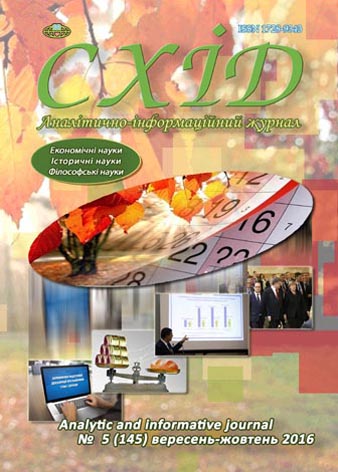The Arab-Persian philosophy and the influence of Zoroastrianism
DOI:
https://doi.org/10.21847/1728-9343.2016.5(145).83853Keywords:
Zoroastrianism, the Arab-Persian philosophy, Islam, ShiismAbstract
The Arab-Persian Islamic philosophy is very interesting and diverse. This philosophy turned back to the Western tradition the majority of ancient Greek philosophers and gave the world a lot of interesting ideas and thoughts. But it did not appear out of nowhere. Islam and its philosophy combine a lot of cultures and traditions. Why should we distinguish between Arabic and Persian Medieval philosophy? Of course, they both occur on the soil of Islam, but for the Arabs it is a fundamental step from paganism to a monotheistic religion, and for the Persians it is just the transition from one revealed religion to another. This fact affected these two philosophies, making them not conciliating foes. The influence of Zoroastrianism is present in Islamic Shiism and its thoughts and ideas have become traditional for Muslims. Sufism, Shiism and other Muslim confessions enriched and expanded Islam and the philosophical ideas of Zoroastrianism have enriched the Arab-Persian philosophy. Zoroastrian Persian culture has played a leading role in forming not only Shiism, but also the transformation of Islam in a multicultural and multilingual culture and religion. Iranian civilization has played the same role in the development of Muslim culture as Greek civilization in the formation of Christianity and its culture.
Downloads
References
Boyce, М. (1979), Zoroastrians: Their Religious Beliefs and Practices, Routledge & Kegan Paul, London, Boston and Henley, xxi + 252 p. (eng).
Korben, A. (2009), History of Islamic philosophy, Progress-Tradition Publishing, Moscow, 480 p. (rus).
Frolova, E. A. (1995), The History of medieval Arab-Islamic philosophy, Institute of philosophy, Russian Academy of Sciences, Moscow, 175 p. (rus).
Sagadeev, A. V. (1973), Ibn-Rushd (series: the Thinkers of the past), Mysl, Moscow, 208 p. (rus).
Doroshenko, E. A. (1982), Zoroastrians in Iran (a Historical-ethnographic study), Main editorial Board of Oriental literature of publishing house «Nauka», Moscow, 133 p. (rus).
The rationalistic tradition and modernity. The middle East (1990), Nauka, Moscow, 280 p. (rus).
Smith, M. M. (1944), Al-Ghazali: the Mystic, W.p., London, 21 p. doi: 10.4324/9780203019139.ch27
Dubrovina, T. A. and Lasareva, E. N. (1999), Zarathustra, Olimp; “Firm “Publishing house ACT” Ltd, Moscow, 208 p. (rus).
Men, A. (1992), History of religion, Vol. 6, Publishing house «Word», Moscow, 478 p. (rus).
Gauthier, L. (1948), Ibn Rochd (Averroes), Presses Universitaires de France, Paris, 283 p. doi: 10.1086/349112
Afnan, S.M. (1958), Avicenna. His life and works, W.p., London, 298 p. doi: 10.2307/2183511
Ibn Sina (1980), Selected philosophical works, Nauka, Moscow, 552 p. (rus).
Gryaznevich, P. A. (1982), The development of historical consciousness of the Arabs (VI-VIII centuries), in: Essays on the history of Arab culture of V-XV centuries, Moscow, 75-155 (rus).
Downloads
Published
How to Cite
Issue
Section
License
Copyright (c) 2016 Katerina Gololobova

This work is licensed under a Creative Commons Attribution-NonCommercial-NoDerivatives 4.0 International License.
1. Authors bear responsibility for the accuracy of facts, quotations, numbers and names used.
2. Manuscripts are not sent back.
3. The publisher does not always agree with the authors' opinion.
4. The authors reserve the right to authorship of the work and pass the first publication right of this work to the journal under the terms of a Creative Commons Attribution-NonCommercial-NoDerivatives 4.0 International License. This license allows others to distribute (copy) the published work for non-commercial purposes, provided there is mandatory attribution to its authors and a link to the first publication in our journal.
5. The authors have the right to conclude separate supplement agreements that relate to non-exclusive work distribution in the form in which it has been published by the journal (for example, to upload the work to the online storage of the journal or publish it as part of a monograph), provided that the reference to the first publication of the work in this journal is included.

